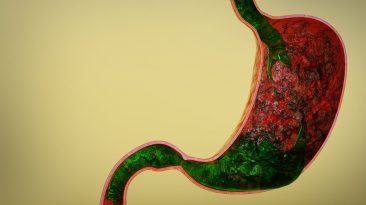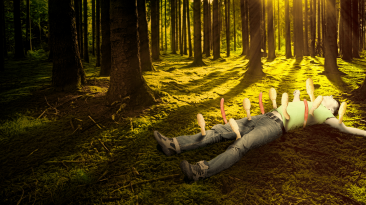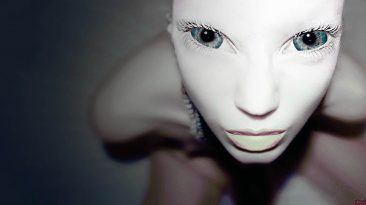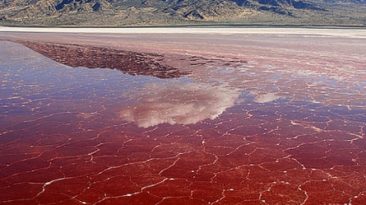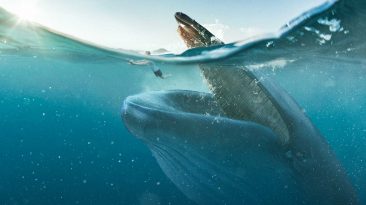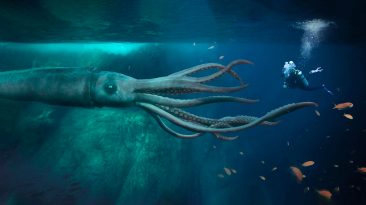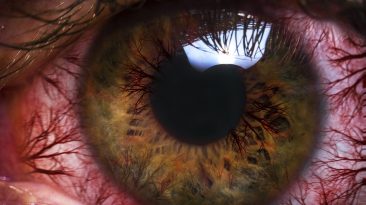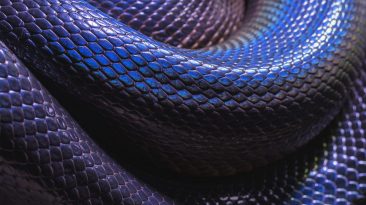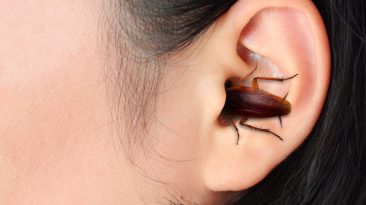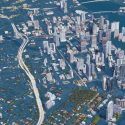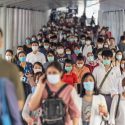https://www.youtube.com/watch?v=5RYxdKzG8js
Your DNA is constantly changing. And if it weren’t for genetic mutations, evolution wouldn’t exist. So, what would life be like if that stopped?
What causes your DNA to change? How would your life immediately change without genetic mutations? And what would happen to humanity in the long run?
DNA is short for deoxyribonucleic acid. And even though 99% of your DNA is the same as everyone else, it’s the instruction manual for what makes you, you. DNA is what makes up your genome. Your genome contains three billion bases, 20,000 genes and 23 pairs of chromosomes. Half you inherit from the sperm of your father and the other half from the egg of your mother.
DNA provides directions for your body to make different proteins you need for your health, growth and development. So if that genetic evolution stopped, would this lead to the eventual extinction of humankind?
Did I mention your DNA is constantly mutating? And before you get excited, no, I don’t mean any X-Men kind of mutations. Your DNA mutations are changes that occur in the sequence of a gene. Some of them are good for you. Some of them are bad. Most are neutral.
Mutations are a natural part of DNA replication. Most of the time, your DNA sequences replicate without any errors. But sometimes mistakes happen. Mutations occur when nucleotides, the basic building blocks of DNA, are added, deleted or incorrectly exchanged in a sequence.
Entire segments of DNA could translocate, or move, from one chromosome to another. They could even be replicated in an inverted structure of the original sequence. You could inherit genetic mutations from your parents. You could acquire them from environmental agents like ultraviolet radiation and certain chemicals. They could even mutate by chance.
But your DNA does have methods for recognizing these imperfections. Special repair enzymes cut out the wrong pieces and replace them with the right ones. But some of these mistakes get through and become permanent. At this point, your cells would no longer recognize them as errors.
Mutations in your body’s cells could impact your life, development and well-being. These random, unpredictable DNA mistakes account for nearly two-thirds of the mutations in cancers.
But in order to be passed on, genetic variants would need to occur through reproduction. This is called hereditary variation, and it’s what makes evolution possible. So if mutations in your DNA stopped, you’d no longer benefit from some of the mutations that occur.
If you’re an athlete, you won’t (wouldn’t?) get the so-called sports gene. This mutation in the ACTN3 gene affects muscle fibers responsible for fast tensing or flexing. Geneticists have found that elite sprinters and power athletes are less likely to have defective copies of this gene than the general public.
Another example is a mutation linked to higher levels of good cholesterol. A mutation in the gene that produces the CETP protein can cause a deficiency that could cause a lower prevalence of coronary heart disease.
But with all of the positive mutations out of the picture, you’d also no longer suffer from negative mutations. Genetic disorders like cystic fibrosis would not pass on to new generations.
And if our cells didn’t mutate, then cancers would also cease to exist. Without these conditions, the human lifespan could increase. But we’d be ushering in a new era of life without biological evolution. Natural selection only operates, or doesn’t operate, after a mutation occurs. If that mutation is beneficial to the survival of a species, it becomes more common over time.
That means we’d need to develop other forms of evolution to keep our species from dying out. Meanwhile, ther animals and plants would continue to evolve. Maybe the foods that nourish you today would no longer be substantial for survival.
Look at lactose tolerance. Most mammals lose their ability to digest lactose before adulthood. But for many humans, this ability persists. This is due to a mutation in the LCT gene.
10,000 years ago, our diets changed profoundly with the domestication of plants and animals. People who were able to digest these new foods better had a genetic advantage. If we no longer could adapt to new diets, we’d have to develop new technologies to make food that could sustain our species.
Well, if we can already make lactose-free milk, maybe there’s no end to the ways we can survive without genetic mutations. But good or bad, these little errors are what make us who we are.
Sources
- “What Is DNA? Structure, Function, Pictures & Facts“. 2021. Healthline.
- “DNA Mutations – Genetics Generation”. 2021. Genetics Generation.
- “8 Genetic Mutations That Can Give You ‘Superpowers'”. Lydia Ramsey, Business Insider. 2021. Sciencealert.
- “New Study Finds That Most Cancer Mutations Are Due To Random DNA Copying ‘Mistakes’ – 03/23/2017”. 2021. hopkinsmedicine.org.
- “How can gene variants affect health and development?”. medlineplus.gov.
- “Mutations Are The Raw Materials Of Evolution | Learn Science At Scitable“. 2021. nature.com.


